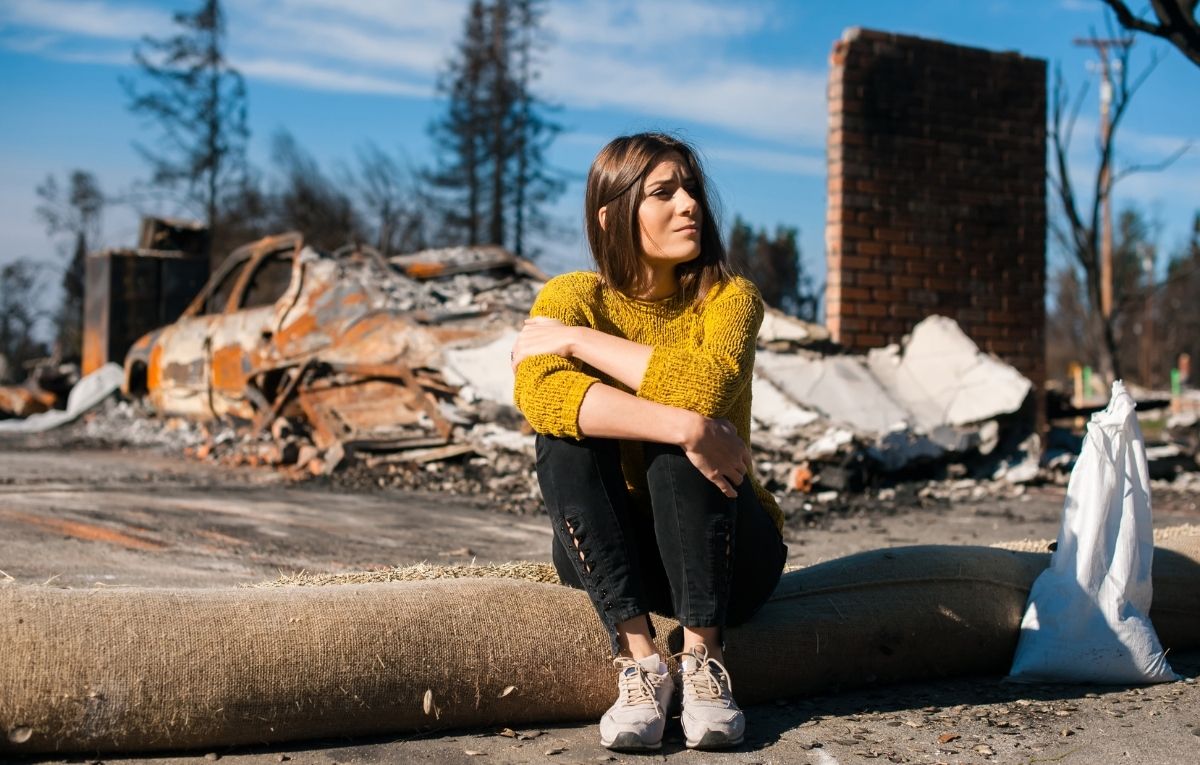A fire is a horrifying disaster. You never know if it’ll happen to you or someone around you, but when the time comes how are we supposed to act? We need to have our heads on straight and be prepared for anything that might come out of this crisis. Fires not only cause physical damage but emotional distress as well. It’s hard for many to imagine living through a house fire. But when you add the fact that it happens every five minutes, and over 400 people die each year in these disasters – not counting property or mental anguish costs – what could be more terrifying?
Many different emotions come with a residential fire. In addition to the emotional toll, fires can cause physical injuries and leave you without your place of security, comfort, or safety. “Why?” is left in our minds when we lose everything from photo albums to treasured objects after a house fire has taken over – it’s not just about losing property but also life as you know it!
We find ourselves asking why all too often during an emergency such as this one; what happened? What caused this? Why did my home have to be on the receiving end of destruction like so many others before me who never deserved for their homes to go up in flames?
It is human nature to want an answer, but it may be impossible. Humans are always asking, “Why?” or “How did this happen?”. However, these questions can sometimes become counterproductive when trying to recover and rebuild after trauma. Perhaps the better question you should ask yourself is: how do I pick myself up and go on living as meaningfully as possible?
It’s not easy picking up the pieces and starting over. But for some survivors, it is a chance to find an internal core of strength that they never knew existed or their faith in themselves; others rely on finding personal meaning out of what happened- which can help them cope with events such as these. They view the event as a turning point -a wake-up call if you will–so it might be worth giving life another shot!
Understanding Traumatic Events
When a natural disaster happens, it can affect the health and wellness of anyone that has been impacted by intense trauma. Natural disasters such as hurricanes or floods often have lasting effects on those who were there at the time of these events (primary survivors), including injuries and loss(es). In addition to direct victims, people in other parts of their lives might be affected too – witnessing either firsthand or through television (secondary survivors), which could lead them to develop PTSD later on down the line with an increased risk for mental illness.
Focusing on the Basics of Coping
Survivors of traumatic events need to focus on basic necessities and may find it difficult in the first 72 hours. They might be so focused on caring for themselves that they forget what they really want or desire. It can help survivors regain some sense of control by focusing their attention back onto themselves, attending to personal safety needs, and eating and sleeping habits during this period.
After a fire, people often experience sights and sounds that remind them of the disaster. Reminders can lead to distressing thoughts about what happened or intense memories in which you are reliving your experiences. The physical recovery process following a fire is lengthy for many individuals who have experienced trauma like this before.
Conclusion
No matter how well or professional or competent the firefighters or fire watch guards are in trying to put out a blaze, sometimes there are things we cannot replace even with all of their hard work.
It’s easy to get lost in all the chaos of a crisis, but this is actually your chance to think about yourself and what you need for healing.
In times like these, it can be hard not to focus on everything that’s going wrong instead of taking care of yourself – even though there are so many other worries occupying our minds. But now is also when we’re at risk for letting ourselves fall deeper into sadness or depression without realizing it, which could make things harder than they already are!
So, if you haven’t thought much about how you’ll recover from this event yet, go ahead and do some self-care right away by thinking about your personal needs during an emotional time: What has helped me heal before?


